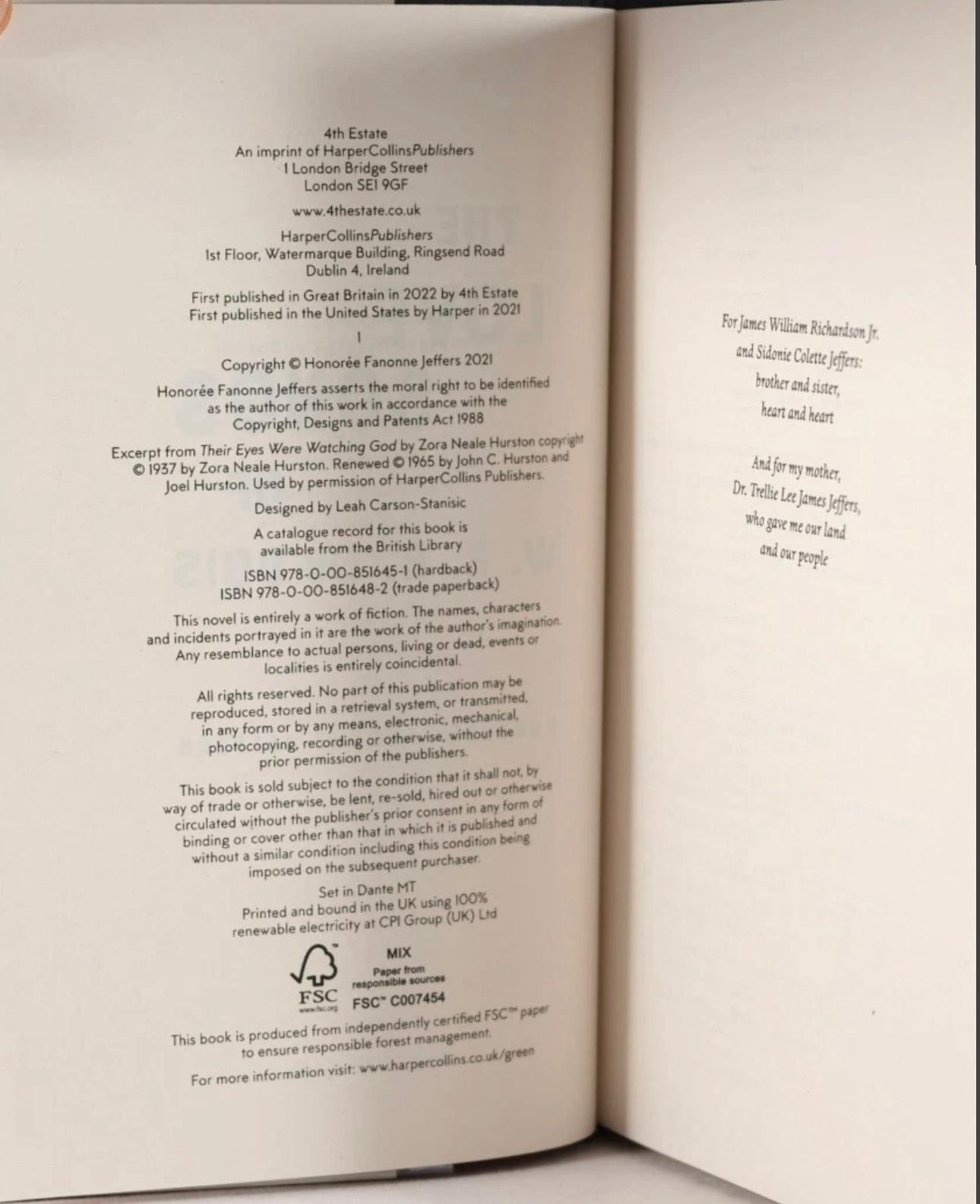Honorée Fanonne Jeffers’ The Love Songs of W.E.B. Du Bois is a sprawling and deeply resonant debut novel that weaves together centuries of American history through the lens of a single African American family. The narrative primarily follows Ailey Pearl Garfield, a young woman growing up in “the City” (a northern urban area) but spending formative summers in the fictional, historically rich town of Chicasetta, Georgia, where her mother’s family has lived for generations.
As Ailey grapples with her own identity and a pervasive sense of displacement compounded by personal trauma, she embarks on a journey to uncover her family’s past. This quest leads her back through a lineage stretching two centuries, revealing the intertwined lives of her Indigenous, Black, and white ancestors. Through lyrical “love songs” interspersed throughout the prose, Jeffers brings to life the struggles, triumphs, and complex relationships of those who came before Ailey, from enslaved people on brutal plantations to those navigating the complexities of post-Civil War Reconstruction and the Civil Rights Movement.
The novel delves into profound themes of family history, the enduring impact of slavery and racial injustice, the pursuit of education and self-knowledge, and the nuances of identity. It explores issues such as colorism, intergenerational trauma, sexual abuse, and addiction with unflinching honesty, while also celebrating the resilience, love, and community that sustained Black families through immense adversity. The philosophies and concepts of W.E.B. Du Bois, particularly his idea of “Double Consciousness,” are woven throughout the narrative, providing a framework for understanding the characters’ experiences and Ailey’s own awakening.
At its heart, The Love Songs of W.E.B. Du Bois is an intimate yet sweeping exploration of what it means to be Black in America, presenting a powerful and nuanced portrait of a nation’s history as told through the personal sagas of its people. It’s a testament to the power of ancestral memory, the search for belonging, and the enduring human spirit.









Reviews
There are no reviews yet.